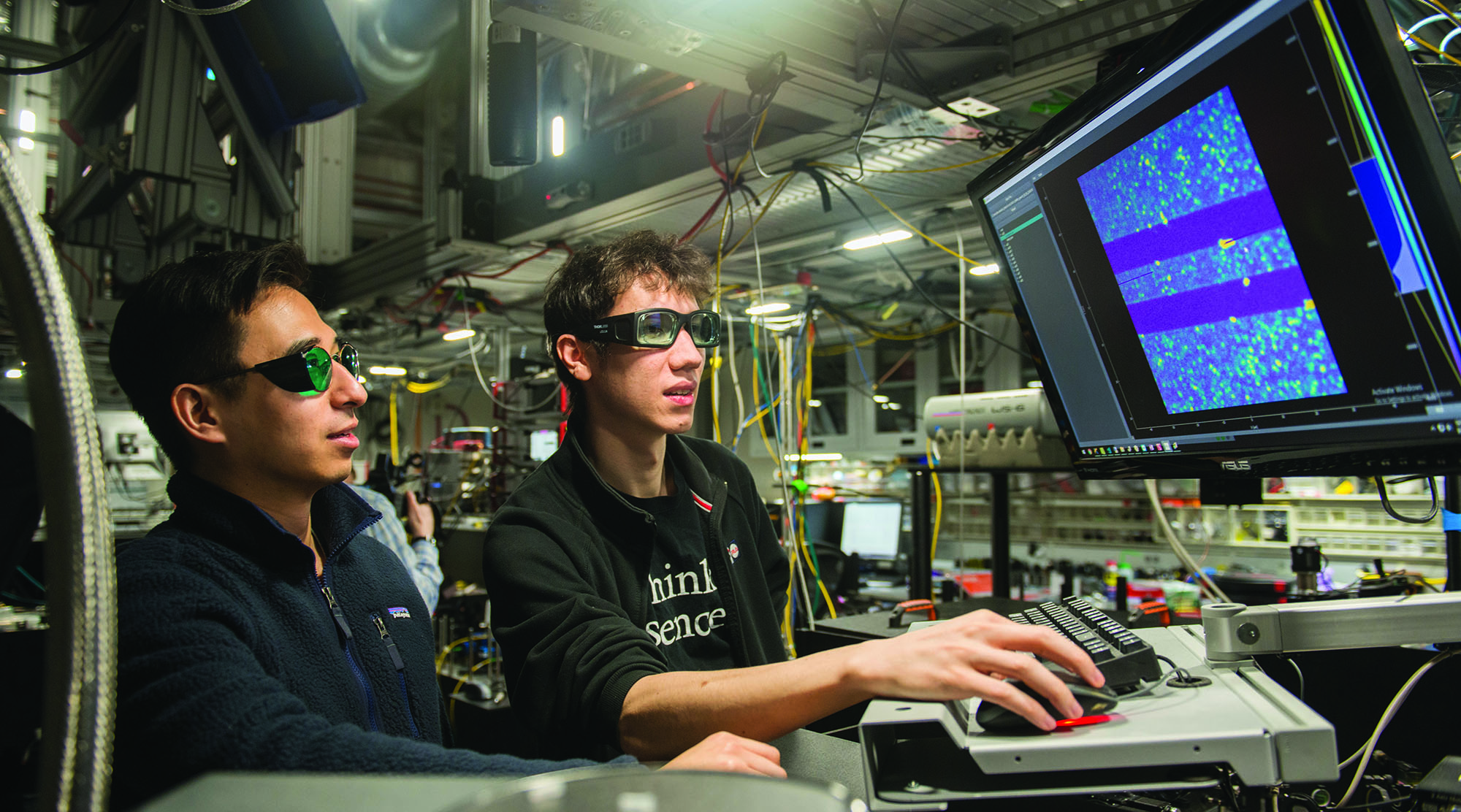
New partnerships position UChicago as a leader in applying quantum technology to global problems.
On May 21, alongside world leaders at the G7 Summit in Japan, the University of Chicago formalized two agreements to transform the future of quantum technology. The first is a 10-year, $100 million plan with IBM and the University of Tokyo to develop the blueprints for building a quantum-centric supercomputer powered by 100,000 qubits. The second is a strategic partnership with the University of Tokyo and Google, with Google investing up to $50 million over 10 years, to accelerate the development of a fault-tolerant quantum computer and to help train the quantum workforce of the future.
Quantum-centric supercomputing is a new and promising area of high-performance computing. IBM’s partnership with the University of Chicago and the University of Tokyo will work toward the delivery of a 100,000-qubit system by 2033. Qubits are the basic units of information in quantum computing, similar to bits in classical computing.
The distinctive properties of computing via quantum mechanics, alongside both classical and artificial intelligence computing resources, might allow a 100,000-qubit quantum computer to tackle many complex problems extremely quickly. That could bring tangible benefits to the lives of many—for example, by identifying molecules for new medicines and designing more efficient, sustainable solutions for energy.
The IBM partnership will work to advance the underlying technologies of such a system, and to design and build the necessary system components at scale. In tandem, the collaboration with Google will help ensure that quantum computing is developed safely and responsibly, and that the benefits of the technology are shared by everyone.
“Achieving breakthroughs at scale in quantum technology requires deeply rooted and productive collaboration around the world and across a broad range of industry, academic, and government partners,” said University of Chicago president Paul Alivisatos, AB’81. “Quantum information science and technology is at a crossroad, where foundational discovery and technical innovation will combine to create real breakthroughs. The University of Chicago is thrilled to partner in this endeavor.”
“Building a massive quantum-centric supercomputer on the time scale envisaged by our partnerships represents an extraordinary grand challenge—not only for our institutions and our nations, but also for humanity,” added Juan de Pablo, executive vice president for science, innovation, national laboratories, and global initiatives.
Since UChicago decided more than a decade ago to make quantum technology a focus of the Pritzker School of Molecular Engineering, the city of Chicago has become a leading global hub for research in quantum technology and home to one of the largest quantum networks in the country.
The Chicago Quantum Exchange (CQE), headquartered at UChicago, convenes university, government, and industry partners to advance the science and engineering of quantum information, train the next generation of quantum scientists and engineers, and build the quantum economy. In 2021 the CQE teamed up with the University’s Polsky Center for Entrepreneurship and Innovation to launch Duality, the first US start-up accelerator program exclusively focused on supporting early-stage quantum companies—many of which call Chicago home.
The two universities and IBM hope to expand their partnership to include Argonne National Laboratory and Fermi National Accelerator Laboratory, both CQE members and Department of Energy National Quantum Information Research Centers. The labs, managed by UChicago, offer unique capabilities and the expertise needed to deliver the technologies envisioned in the quest to build a quantum-centric supercomputer.
As quantum computers are scaled and interconnected with classical computing systems, the design of efficient software could significantly accelerate the performance and reliability of the new machines, shaving years off development time. “With researchers who are defining new quantum disciplines and working across fields,” said Fred Chong, the Seymour Goodman Professor in the Department of Computer Science, “the University of Chicago brings a unique research capability to bear on advancing this technology.”
The Google partnership will invest in research topics to speed the development of a fault-tolerant quantum computer, support the exchange of ideas, promote quantum computing entrepreneurship and business, and train the workforce needed for the next generation. Google will make its advanced quantum processors available to researchers from UChicago and the University of Tokyo and will expand access to classical computing for researchers, helping students and faculty learn how to program and develop algorithms for quantum computers.
To promote research breakthroughs, Google will invest in faculty grants and fund graduate and undergraduate research at universities around the world. The partnership will help train hundreds of students and build a pipeline of talent in electronics, chip fabrication, software engineering, and more.
“Through these partnerships, we will develop the research and engineering environment necessary to advance quantum science discoveries and build the workforce of the future,” said David Awschalom, the Liew Family Professor in Molecular Engineering and Physics at UChicago and founding director of the CQE. “It is only with international and industrial collaborations like these that we’ll accelerate the pace of quantum technologies and their translation to society.”
